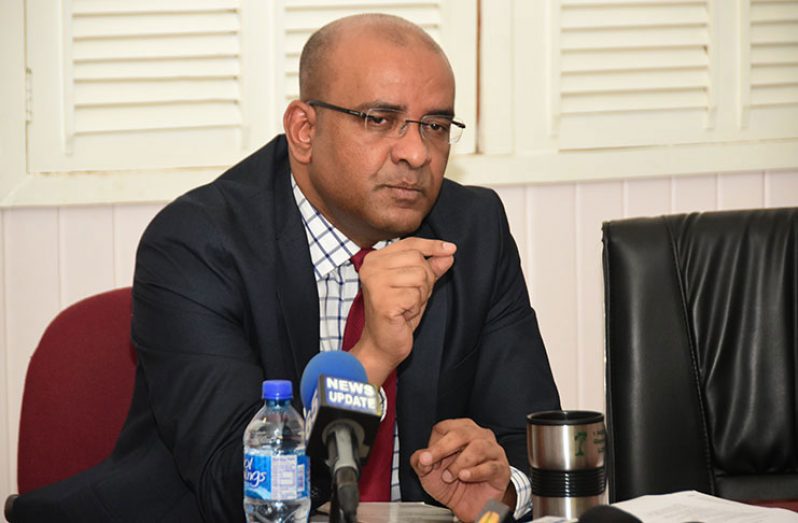OPPOSITION Leader Bharrat Jagdeo believes that Guyana is not prepared for the “revolution” that would come with the implementation of copyright laws and has given support to persons who utilise and distribute bootlegged and other pirated materials.
Speaking on Thursday at his weekly press conference, Jagdeo sought to address President David Granger’s recent announcement that an Intellectual Property Rights Bill will be brought before the House during this session of Parliament to deal with Guyana’s lack of proper copyright legislation.
Jagdeo’s position received criticism on social media but the former President said the disagreement is expected and he would not change his stance on the matter.
“I know I’m going to be hammered for this, but that’s how I’ve always approached it,” he maintained.
The call for updated copyright laws in Guyana has been a longstanding one from players in the creative arts industry, who have over the years seen their works cheaply re-distributed without them benefitting.
According to Jagdeo, the change would affect businesses that trade in pirated materials, including the multiple push cart CD and DVD vendors, as well as citizens who would now have to pay more for original materials.
“I hope that people understand what this would mean; this would be a revolution in Guyana,” Jagdeo reasoned.
He added: “When it passes next year, every video store in this country that sells these bootlegs, will have to close and every store that sells music now would have to close. The guys that do the push cart, they can be charged too. They wouldn’t be able to do that anymore. The citizens of this country would have to pay for every single thing, so it means all the television shows that we broadcast now you would have to pay for it.”
Jagdeo also alleged that only “a couple of people” would benefit with the implementation of the legislation, notably those in the cable environment.
Questioned on how the absence of copyrights laws would affect local artistes, Jagdeo said local artistes and performers “should get a special position” where their work is concerned. He added that when in Government, work was being done to give local artiste some level of protection.
“We were working on a model where we could protect locally produced material. So we protect the copyrighted material for local artistes and we have those enforced, removed from the shelves, etcetera, and then wait until the appropriate time, until such time in the future that people can afford to pay for the copyrighted material,” he said.
Jagdeo also contended that international agreements on copyright laws do not protect small countries like Guyana.
“It may not sound the most enlightening position, given that you have international treaty and stuff, but half of those treaties don’t protect us smaller countries. They don’t protect our interests… and so we now are pushed to protect other people’s copyrights and they don’t protect our trade rights in other parts of the world,” he contended.



.jpg)









